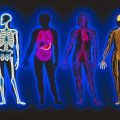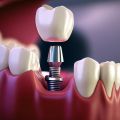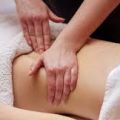8 Strange Facts About the Human Body

Find out why do women feel the cold more than men, why do people need fingerprints, and if the joints can predict the weather.
1. Is it true that the feet get bigger with age?
A person’s tendons and ligaments weaken over the years. Because of this, the foot arch may become flattened and the feet will become wider and longer. This is especially true for people with obesity and diabetes, as well as those who have swollen ankles. By the age of 70–80, legs usually increase by one size.
2. Why do women feel the cold more than men?
Women have more subcutaneous fat, but it’s concentrated in the hips and rear end and warms the internal organs. Therefore, the limbs are less protected from the cold. And when the hands and feet are cold, it seems that the whole body is cold. In addition, women have a lower threshold for the perception of cold. At the same temperature, the blood vessels in the fingers of women narrow more than in men, so the hands freeze more.
3. Is it true that body odor changes with age?
Yes, this is true. Young, middle-aged, and old people have a distinct body odor. According to a study, old people smell less intense and more pleasant than young and middle-aged people.
4. Why is room temperature coffee so tasteless?
Some taste buds are more sensitive to food molecules at room temperature. Hot coffee seems less bitter (and therefore tastier) because taste buds that recognize bitter are simply insensitive to the hot temperature. The smell also affects the perception of taste. A hot coffee smells nicer than a cool one.
5. Why a full bladder wakes me up and full bowel doesn’t?
Neurons in the intestines control the contraction of the colon which pushes waste products from the digestive process. And the work of neurons is regulated by circadian rhythms. Therefore, we don’t have the need to empty our bowels during sleep.
The bladder can hold a strictly defined amount of urine which is continuously produced by the kidneys. You can usually sleep for 6-8 hours without feeling the need to empty the bladder. But if you have certain diseases or have drunk a lot of water before sleep, your bladder can wake you up at night.
6. Can joints predict the weather?
It is quite possible. Before the onset of bad weather, atmospheric pressure usually sharply drops. Therefore, body tissues expand which can cause pain. The effect is usually mild but people with arthritis and sore joints can feel it more.
The temperature also affects joints. Researchers from Tufts University discovered that changes in barometric pressure and ambient temperature are independently associated with osteoarthritis knee pain severity.
7. Is it possible to cure hiccups by holding your breath?
If you do not breathe in, the body will accumulate carbon dioxide which will stop the spasms of the diaphragm, causing hiccups. When the diaphragm involuntarily contracts, a quick breath occurs. However, it is interrupted by the epiglottis (the cartilage located behind the tongue). When closing, it produces a hiccup-specific sound.
8. Why does armpit sweat smell worse than sweat from other parts of the body?
There are two types of sweat glands in the body. Sweat glands located on the arms and legs secrete a mixture of water and salt. But the glands in the armpits secrete an oily substance that bacteria feed on. Bacteria eat this oil and cause an unpleasant smell.
Other articles and publications:
Articles and publications of other companies:
- +1 (646) 270-9836
- Long Island City
- grantny.com











